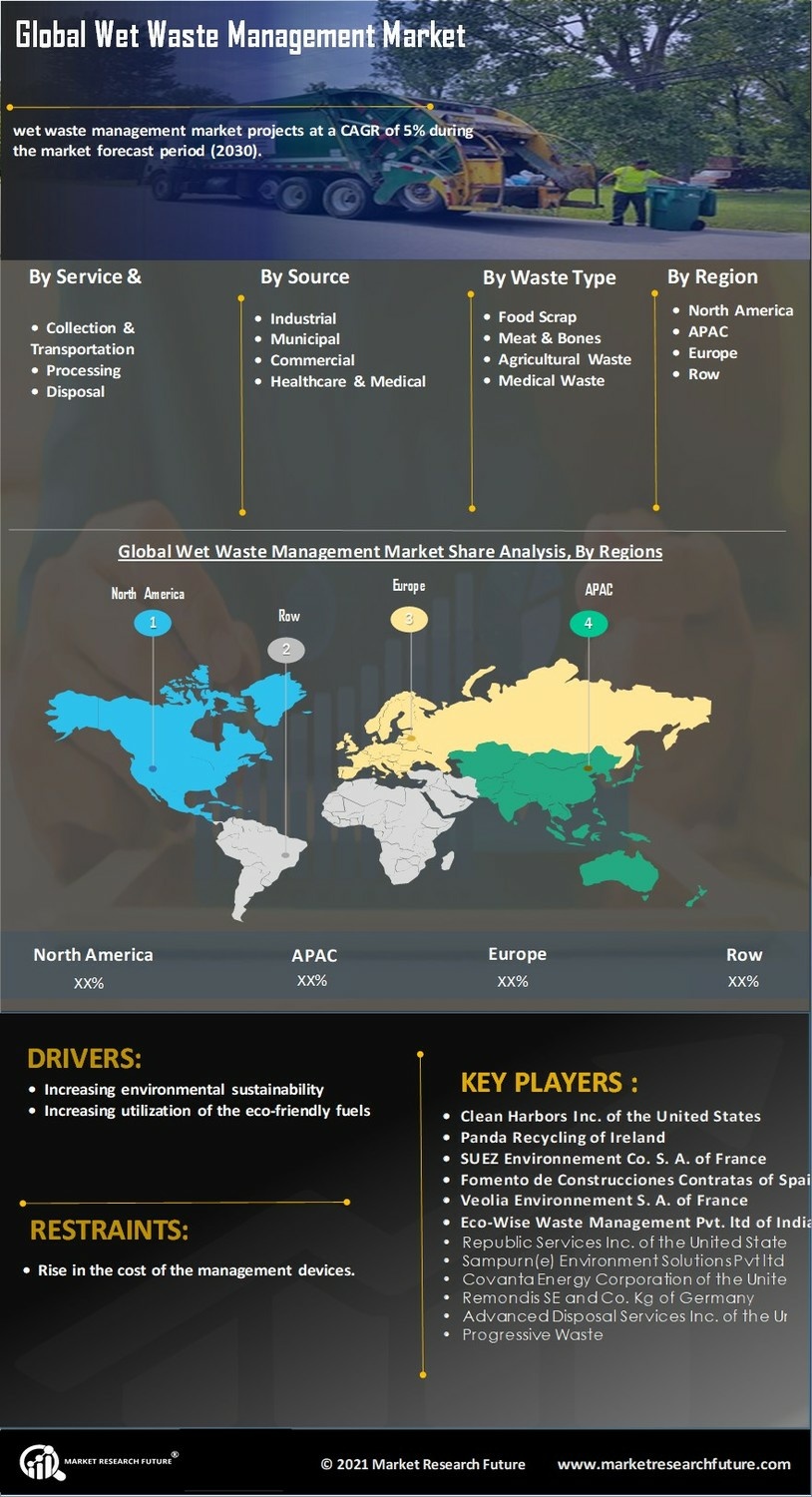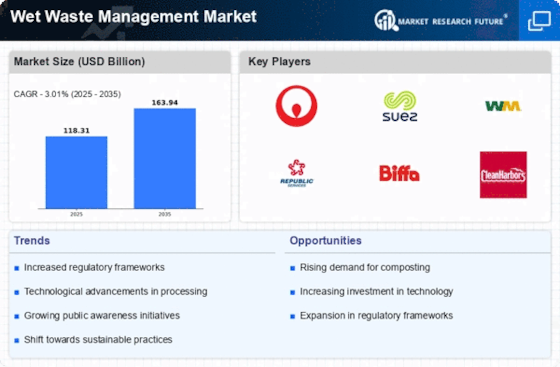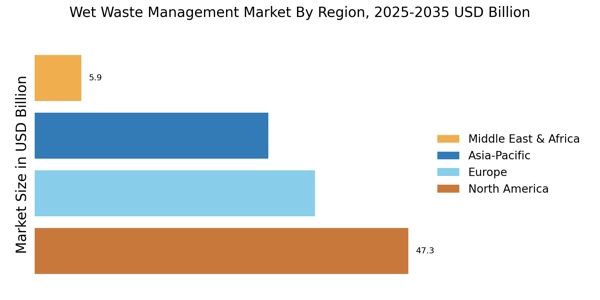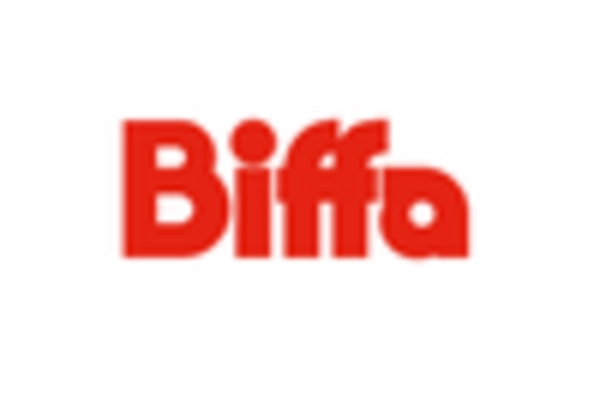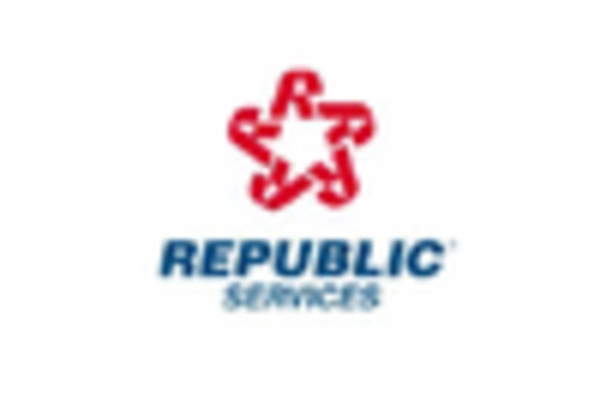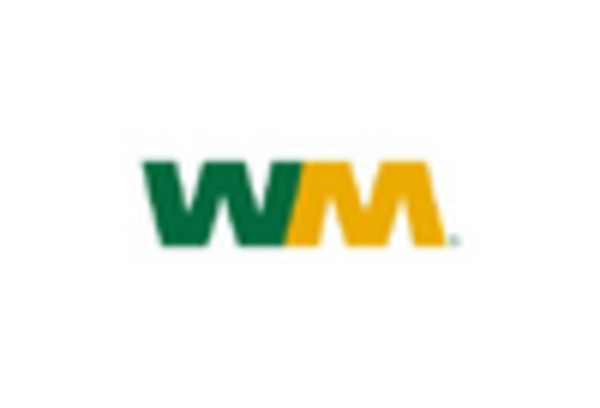Rising Environmental Awareness
There is a notable increase in environmental awareness among consumers and businesses, which is influencing the Wet Waste Management Market. As individuals become more conscious of their ecological impact, there is a growing demand for sustainable waste management solutions. This shift is reflected in the rising popularity of composting and recycling initiatives, which aim to reduce landfill waste. Market data suggests that companies offering eco-friendly waste management services are witnessing a surge in demand, as consumers prefer to engage with businesses that prioritize sustainability. This trend indicates a potential transformation in the Wet Waste Management Market, as stakeholders adapt to meet the expectations of environmentally conscious consumers.
Government Initiatives and Policies
Government initiatives and policies play a crucial role in shaping the Wet Waste Management Market. Many governments are implementing stringent regulations aimed at reducing waste generation and promoting recycling. For example, policies that mandate organic waste separation and composting are becoming increasingly common. These regulations not only encourage responsible waste disposal but also stimulate investment in waste management technologies. The implementation of such policies is expected to drive growth in the Wet Waste Management Market, as businesses and municipalities seek to comply with evolving legal frameworks while enhancing their waste management practices.
Economic Incentives for Waste Reduction
Economic incentives for waste reduction are emerging as a significant driver in the Wet Waste Management Market. Governments and organizations are increasingly recognizing the financial benefits of reducing waste through various incentive programs. These may include tax breaks for companies that implement sustainable waste management practices or grants for municipalities that invest in advanced waste processing technologies. Such incentives not only encourage businesses to adopt eco-friendly practices but also foster innovation within the Wet Waste Management Market. As economic pressures mount, the potential for cost savings through effective waste management strategies is likely to motivate stakeholders to prioritize waste reduction initiatives.
Increasing Urbanization and Population Growth
Urbanization and population growth are pivotal drivers of the Wet Waste Management Market. As urban areas expand, the volume of wet waste generated increases substantially, necessitating efficient waste management solutions. It is estimated that urban populations will reach 68% by 2050, leading to a corresponding rise in waste generation. This demographic shift compels municipalities to invest in advanced waste management infrastructure and services. The growing demand for effective waste disposal and recycling solutions is likely to propel the Wet Waste Management Market forward, as cities strive to implement sustainable waste management practices that align with their environmental goals.
Technological Innovations in Waste Management
The Wet Waste Management Market is experiencing a surge in technological innovations that enhance waste processing efficiency. Advanced technologies such as anaerobic digestion and composting systems are being adopted to convert organic waste into valuable resources. For instance, the implementation of smart waste management systems, which utilize IoT devices, allows for real-time monitoring of waste levels, optimizing collection routes and reducing operational costs. According to recent data, the adoption of these technologies could potentially increase waste diversion rates by up to 50%, thereby significantly impacting the overall effectiveness of waste management strategies. This trend indicates a shift towards more sustainable practices within the Wet Waste Management Market, as stakeholders seek to minimize environmental footprints while maximizing resource recovery.
